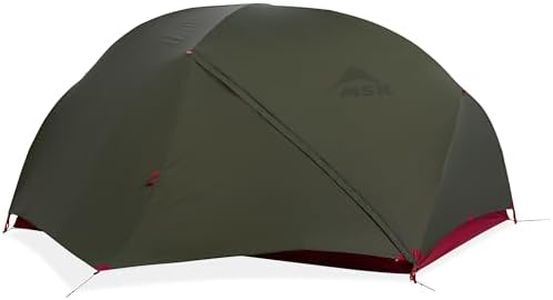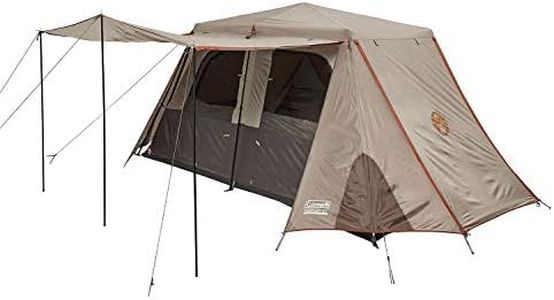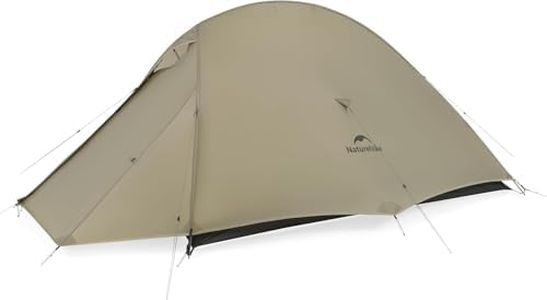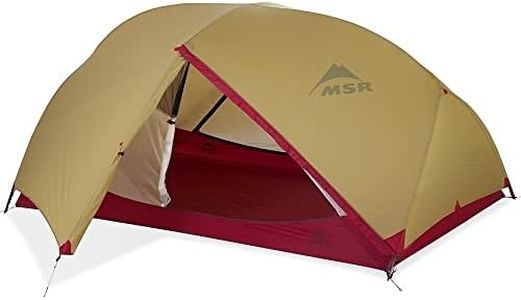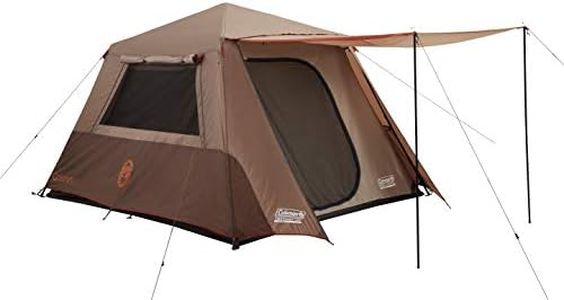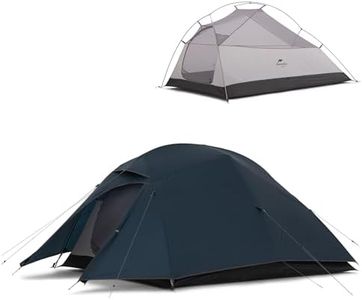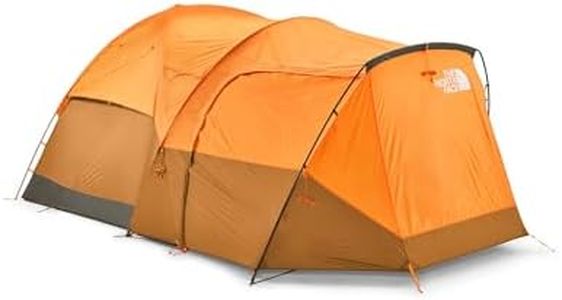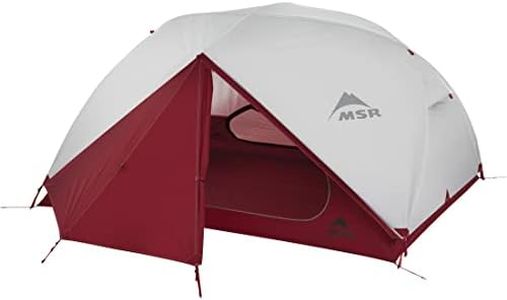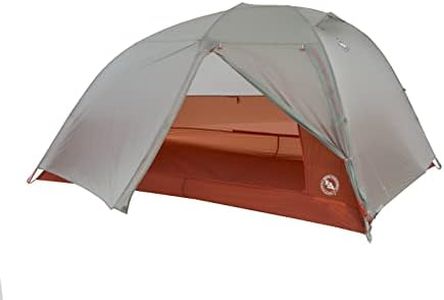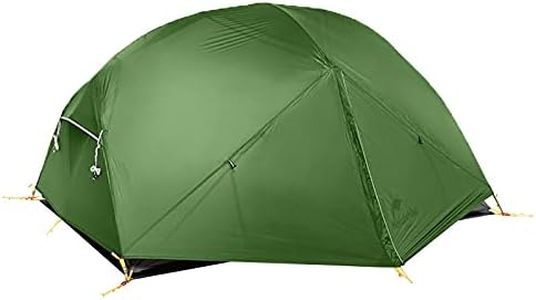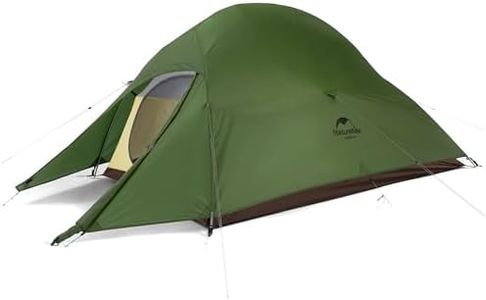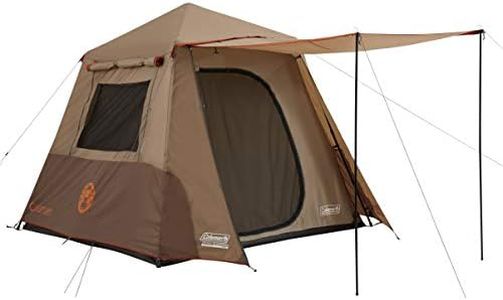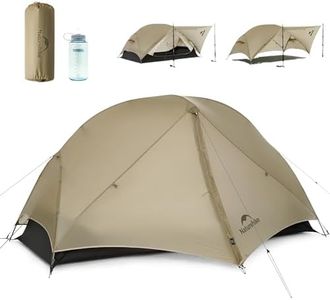We Use CookiesWe use cookies to enhance the security, performance,
functionality and for analytical and promotional activities. By continuing to browse this site you
are agreeing to our privacy policy
10 Best Camping Tents
From leading brands and best sellers available on the web.By clicking on a link to a third party's website, log data is shared with that third party.
Buying Guide for the Best Camping Tents
Choosing the right camping tent is crucial for a comfortable and enjoyable outdoor adventure. The best tent for you should match your camping style, the typical weather conditions you'll face, and the number of people (or pets) who will be using it. Start by thinking about the situations where you'll use the tent most often—will you be backpacking and need something lightweight, or are you planning on car camping and comfort is the top priority? Once you understand your needs, you can compare tents by their main features to find the perfect fit.CapacityCapacity refers to the number of people the tent can comfortably sleep, usually indicated as 2-person, 4-person, etc. This spec is important because it determines how much space you'll have for sleeping and storing gear. Tent capacity is usually measured tightly, so a '4-person' tent often fits four people closely side by side, with little room for bags or extra gear. If comfort and storage are priorities, consider sizing up (for example, getting a 4-person tent for two people). Think about who will use the tent and whether you prefer a cozy or spacious setup.
SeasonalitySeasonality shows how well a tent handles various weather conditions. Most tents are rated as 3-season (spring, summer, fall), 4-season, or even specially adapted for extreme environments. A 3-season tent is suitable for most camping trips, offering ventilation and enough protection against rain and moderate winds. 4-season tents are designed for winter conditions, with stronger materials and structures to handle snow and colder weather, but tend to be heavier and less breathable. Choose based on when and where you usually camp—if you stick to fair weather, a 3-season tent will suffice, while winter campers should opt for greater protection.
WeightWeight is especially important for backpackers who need to carry their tent for long distances. Lightweight tents are easier to transport but may sacrifice a bit of space or durability for the sake of easier carrying. On the other hand, heavier tents can offer more comfort and features, suitable for car camping where you don’t need to carry the tent far. To pick the right weight, think about how you’ll travel—if hiking long distances, lighter is better; if driving to your campsite, weight is less of a concern.
Setup and StructureSetup and structure speak to how the tent is put together and how easy it is to pitch. Some tents are designed for quick assembly, with color-coded poles or pop-up frames, making them ideal for beginners or when you often arrive at your site late. More complex structures might offer more stability or weather protection but take longer to set up. Consider your experience level and how quickly you want to be able to set up your shelter—easy setup is great for convenience, while more advanced campers might prioritize stability for harsh conditions.
Ventilation and Weather ProtectionGood ventilation and weather protection keep you comfortable and dry inside the tent. Features like mesh panels help airflow to reduce condensation, while rainflies and waterproof floors protect against rain and damp ground. Some tents have larger mesh windows or multiple doors for better air circulation. If you camp in hot or humid climates, look for increased ventilation. For rainy or unpredictable weather, prioritize reliable waterproofing with a full-coverage rainfly and a bathtub-style floor. Adjust your preference based on the most challenging weather you expect to encounter.
Packed SizePacked size describes how small the tent becomes when packed away, which matters for storage and portability. A compact packed size makes it easier to fit the tent in a backpack or car trunk. Tents with simple poles and less bulk generally pack down smaller, ideal for those with limited space. Decide based on how you'll transport your tent—if you'll be hiking, a smaller packed size is beneficial; if space isn’t limited, it’s less critical.
